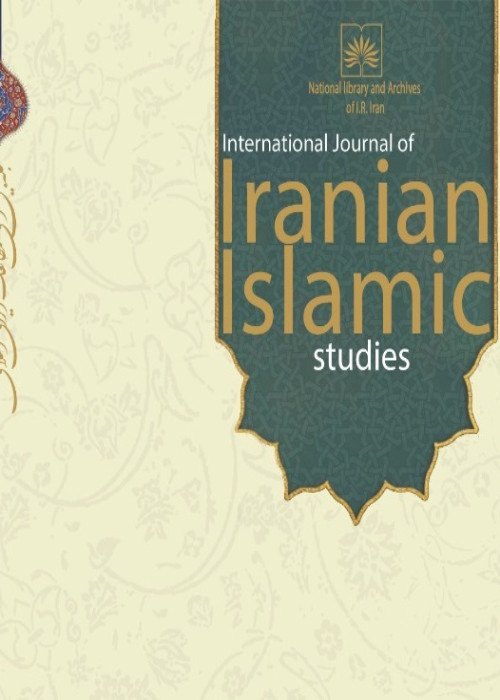The Economics of Muslim Communities in the Ilkhanate: A Case Study of Aran
The Mongol invasion led to the fall of the Abbasid Caliphate and the formation of the Ilkhanid dynasty in Iran; in the continuation of this transformation and extensive political changes, the social and economic situation throughout the neighboring regions was also affected. These changes include the effects of the Mongol's nomads way of life on the peasant and Sedentist peoples, the administration of government and taxation, the disappearance of the agricultural economy and the spread of land-owning or secession, and changes in trade routes and centers; Meanwhile, the Aran region was also one of the states of Iran that was not outside this rule; The present study also seeks to answer the question that what were the main consequences of the rise of the Mongols and the rule of the Ilkhans on the economic situation of Islamic societies, especially the Iranian region? Due to its special geographical location and strategic status, this region was always awarded to the high-ranking Mongol commanders in the form of secession, and due to the tax methods adopted by these military commanders and also the special social tendencies that existed at that time, witnessed extensive changes in the economic and social conditions of Aran and its people in this period. This study will analyze and explain the impact of Ilkhanid rule on the economic situation of the region. What distinguishes the present study from other researches is its reliance on the economic situation of Iran during the Mongol and Ilkhanid eras, so that basically a separate study has not been written on this subject so far. In this research, historical method and analytical-descriptive approach have been used to examine historical reports. Finally, from the historical data, it can be concluded that despite the special political position of the Aran in the Mongol period, which was undoubtedly due to the Ilkhanid relations with Alus Jochi and the centralization of Azerbaijan as a new political center. Agriculture, trade and Sedentist life of the region due to attacks and frequent raids by nomadic tribes were damaged and declined compared to the pre-Mongol period. By examining and assessing the sources, the findings of the research indicate that with the Mongol invasion of Iran, killing, looting and turning agricultural lands into pastures caused the decline of socio-economic life of the states. Aran was also one of the states conquered by the Mongols and was chosen as the winter resort of the Ilkhanate due to its strategic location and climate. Aran, based on its specific geopolitical and geographical location, the location between the Kura and Aras rivers, as well as the location between the two Mongol governments (Ilkhans and the Golden Army), was politically, socially and economically influenced by the events of this period. On the other hand, the passage of trade routes through it caused the rulers of the Ilkhans not to be indifferent to it. On the other side of the borders, Alus Jochi claimed ownership of Aran based on the division of Genghiz and violation of Hulagu Khan of it, under the pretext of attacking cities and regions. The continuation of these conflicts until the end of the Ilkhanate rule had a major impact on the economic and social life of the region. On the other hand, the Ilkhans and the nomadic groups that came to Iran with them had to some extent maintained their way of life, and this way was influential to varying degrees in the economic and social life of the Aran region. As mentioned, the issue of Aran is not explicitly addressed in historical sources, and therefore, since Aran was one of the states ruled by the Ilkhans, it can be inferred that, like other regions, its urban and agricultural population was massacred or enslaved. With the influence of the Mongol military leaders in Iran, their exploitation of villagers and craftsmen, handing over agricultural lands to military commanders in the form of secession and also their lack of knowledge about agriculture, and lands, these swathes of lands became pastures and Iran's agriculture and sedentist life declined. The method of taxation of the Mongols was also a cause of concern and dissatisfaction of the people with the Ilkhans government. This weakened agriculture and depopulated villages. On the other hand, heavy taxes on occupations and trade may have been an obstacle to the revival of social life in the cities of Aran. In general, Aran has played an important role in the political and economic developments of this period due to its mountainous location and its location in the East-West trade route, its proximity to the Black Sea, the conflicts between Alus Jochi and the Ilkhans and the establishment of military barracks; Therefore, the economic situation, agriculture, trade and commerce of the region along with its population, has been affected by the political conditions and developments of the Ilkhanate era.
Aran , Ilkhans , Sovereignty , Economy
- حق عضویت دریافتی صرف حمایت از نشریات عضو و نگهداری، تکمیل و توسعه مگیران میشود.
- پرداخت حق اشتراک و دانلود مقالات اجازه بازنشر آن در سایر رسانههای چاپی و دیجیتال را به کاربر نمیدهد.



